
Alan Eugene Jackson is an American country music singer-songwriter. He is known for performing a style widely regarded as "neotraditional country", as well as writing many of his own songs. Jackson has recorded 21 studio albums, including two Christmas albums, and two gospel albums, as well as three greatest-hits albums.

Tammy Wynette was an American country music singer and songwriter, considered among the genre's most influential and successful artists. Along with Loretta Lynn, Wynette helped bring a woman's perspective to the male-dominated country music field that helped other women find representation in the genre. Her characteristic vocal delivery has been acclaimed by critics, journalists and writers for conveying unique emotion. Twenty of her singles topped the Billboard country chart during her career. Her signature song "Stand by Your Man" received both acclaim and criticism for its portrayal of women's loyalty towards their husbands.

George Glenn Jones was an American country musician, singer, and songwriter. He achieved international fame for a long list of hit records, and is well known for his distinctive voice and phrasing. For the last two decades of his life, Jones was frequently referred to as "the greatest living country singer", "The Rolls-Royce of Country Music", and had more than 160 chart singles to his name from 1955 until his death in 2013.

Joe Logan Diffie was an American country music singer and songwriter. After working as a demo singer in the mid 1980s, he signed with Epic Records' Nashville division in 1990. Between then and 2004, Diffie charted 35 singles on the Billboard Hot Country Songs chart, five of which peaked at number one: his debut release "Home", "If the Devil Danced ", "Third Rock from the Sun", "Pickup Man" and "Bigger Than the Beatles". In addition to these singles, he had 12 others reach the top 10 and ten more reach the top 40 on the same chart. He also co-wrote singles for Holly Dunn, Tim McGraw, and Jo Dee Messina, and recorded with Mary Chapin Carpenter, George Jones, and Marty Stuart.
"He Stopped Loving Her Today" is a song recorded by American country music artist George Jones. It has been named in several surveys as the greatest country song of all time. It was released in April 1980 as the lead single from the album I Am What I Am. The song was Jones's first solo No. 1 single in six years. It was written by Bobby Braddock and Curly Putman. The week after Jones' death in 2013, the song re-entered the Hot Country Songs chart at No. 21. As of November 13, 2013, the single has sold 521,000 copies in the United States. Since 2008 it has been preserved by the Library of Congress in the National Recording Registry. The song was ranked no. 142 on Rolling Stone's 2021 500 Greatest Songs of All Time ranking.

I Am What I Am is an album by American country music artist George Jones, released in 1980 on Epic Records label. On July 4, 2000, the CD version was reissued with four previously unreleased bonus tracks on the Legacy Recordings label.
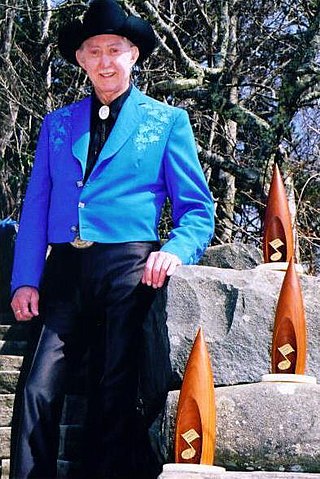
Jack Henry Greene was an American country musician. Nicknamed the "Jolly Greene Giant" due to his height and deep voice, Greene was a long time member of the Grand Ole Opry. A three-time Grammy Award nominee, Greene is best known for his 1966 hit, "There Goes My Everything". The song dominated the country music charts for nearly two months in 1967 and earned Greene "Male Vocalist of the Year", "Single of the Year", "Album of the Year" and "Song of the Year" honors from the Country Music Association. Greene had a total of five No. 1 country hits and three others that reached the top ten. Billboard magazine named Greene one of the Top 100 "Most Played Artists".

Mark Nelson Chesnutt is an American country music singer and songwriter. Between 1990 and 1999, he had his greatest chart success recording for Universal Music Group Nashville's MCA and Decca branches, with a total of eight albums between those two labels. During this timespan, Chesnutt also charted twenty top-ten hits on the Billboard Hot Country Songs charts, of which eight reached number one: "Brother Jukebox", "I'll Think of Something", "It Sure Is Monday", "Almost Goodbye", "I Just Wanted You to Know", "Gonna Get a Life", "It's a Little Too Late", and a cover of Aerosmith's "I Don't Want to Miss a Thing". His first three albums for MCA along with a 1996 Greatest Hits package issued on Decca are all certified platinum by the Recording Industry Association of America (RIAA); 1994's What a Way to Live, also issued on Decca, is certified gold. After a self-titled album in 2002 on Columbia Records, Chesnutt has continued to record predominantly on independent labels.

Too Wild Too Long is an album by American country music artist George Jones released in 1987 on the Epic Records label.

Together Again is a studio album by country music artists George Jones and Tammy Wynette, released in 1980 on Epic Records. It was their first album since their 1976 hit album Golden Ring; their next album would not come until 1995 with One.

Melba Joyce Montgomery is an American country music singer and songwriter. She is known for a series of duet recordings made with George Jones, Gene Pitney and Charlie Louvin. She is also a solo artist, having reached the top of the country charts in 1974 with the song, "No Charge". Born in Tennessee but raised in Alabama, Montgomery had a musical upbringing. Along with her two brothers, she placed in a talent contest which brought her to the attention of Roy Acuff. For several years she toured the country as part of his band until she signed with United Artists Records in 1963.
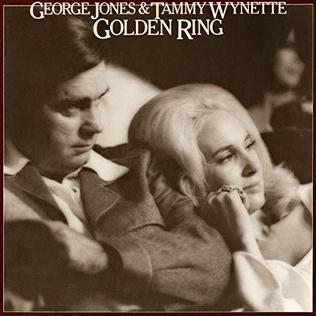
Golden Ring is the seventh studio album by American country music artists George Jones and Tammy Wynette, released in August 1976 on the Epic Records label. It reached No. 1 on the Billboard Country Album chart. The singles "Near You" and "Golden Ring" both reached No. 1 on the Country Singles chart.

Under the Influence is the eighth studio album by American country music artist Alan Jackson. It was released on October 26, 1999, and features covers of other country artists' material. Three singles were released from Under the Influence; "Pop a Top", "The Blues Man", and "It Must Be Love", which respectively reached No. 6, No. 37, and No. 1 on the Hot Country Songs charts. "My Own Kind of Hat", "Margaritaville" and "She Just Started Liking Cheatin' Songs" also entered the lower regions of the charts from unsolicited airplay.
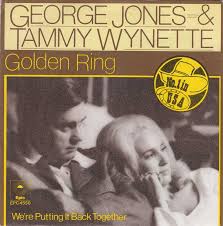
"Golden Ring" is a song written by Bobby Braddock and Rafe Van Hoy, and recorded by American country music singers George Jones and Tammy Wynette. It was released in May 1976 as the first single and title track to their duet album of the same name. It was a number-one hit on the Billboard country chart.
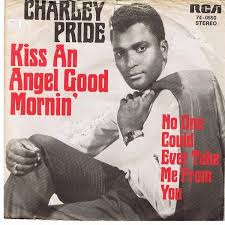
"Kiss an Angel Good Mornin'" is a song written by Ben Peters, and recorded by American country music artist Charley Pride. It was released in October 1971 as the first single from the album Charley Pride Sings Heart Songs. The song has since become one of his signature tunes and was his eighth song to reach number one on the country charts. It was also Pride's only single to reach the Top 40 on the pop charts, peaking at #21 on the Billboard Hot 100, and also went into the Top Ten of the Adult Contemporary charts. It also reached #19 on the U.S. Cash Box Top 100. The song spent four months on the pop chart, longer than any of his other hits. Billboard ranked it as the No. 74 song for 1972.
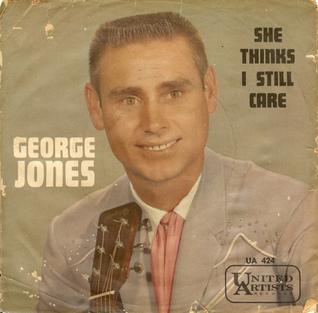
"She Thinks I Still Care" is a country song written by Dickey Lee and Steve Duffy. First popularized by George Jones, the song has been recorded by many artists, including Connie Francis, Anne Murray, Elvis Presley and Patty Loveless.

"(I'm a) One-Woman Man" is a song co-written by American country music artist Johnny Horton and Tillman Franks. It was originally released as a single by Horton in 1956, whose version peaked at number 7 on the Billboard Hot Country Singles chart. The song was twice recorded by American country music artist George Jones: first released on the album The Crown Prince of Country Music retitled "One Woman Man" in 1960, and later as "I'm a One Woman Man" released in November 1988 as the first single from his album One Woman Man. It peaked at number 5 on the Billboard Hot Country Singles chart in early 1989 and it would be his final Top 10 solo hit.
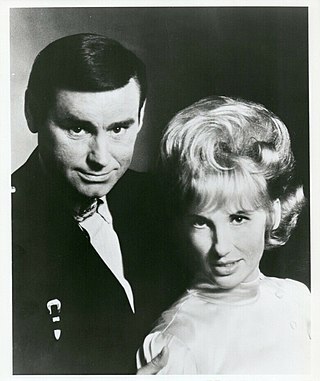
The discography of American country artists George Jones and Tammy Wynette contains the recordings they made as a vocal duo. Their discography includes nine studio albums, 14 compilation albums, 15 singles and one music video. In October 1971, the duo's first studio album was released by Epic Records and was titled We Go Together. It peaked at number three on the American Billboard Top Country Albums chart and number 169 on the Billboard 200 list. Included on the disc was the duo's first single, "Take Me". It reached the top ten on the American Billboard Hot Country Songs chart and the top 20 on the Canadian RPM Country Tracks chart. It was followed by their second studio album called Me and the First Lady, which charted at number six on the Billboard country list. Featured on the disc was their second top ten single, "The Ceremony".

The singles discography of American country artist, George Jones, contains 182 singles. Of the total, 136 were released with Jones as the solo artist. In addition, 31 were issued with Jones being part of a collaboration. Thirdly, eight singles were issued with Jones being part of a featured act. Fourthly, seven released were promotional singles. Additionally, 14 songs that are not released as singles are included that made any major chart. Finally, 21 music videos which were first issued as singles are also listed. Jones had his first chart success in 1955 with several top ten Billboard Hot Country Songs singles: "Why Baby Why", "What Am I Worth" and "You Gotta Be My Baby". After several more top ten releases, "White Lightning" became his first to top the Billboard country chart. Along with "Who Shot Sam", both singles were also his first to make the Hot 100 charts.

The Ways to Love a Man is a studio album by American country artist, Tammy Wynette. It was released on January 26, 1970, via Epic Records and was the seventh studio album in Wynette's career. The disc consisted of 11 tracks which included both original material and cover recordings. Its title track was the album's only single included. It became a number one song on the North American country charts while also reaching chart positions in other musical genres as well. The album itself also reached chart positions on the country albums chart following its release. Critics and journalists gave the album a positive reception in the years that followed.

















